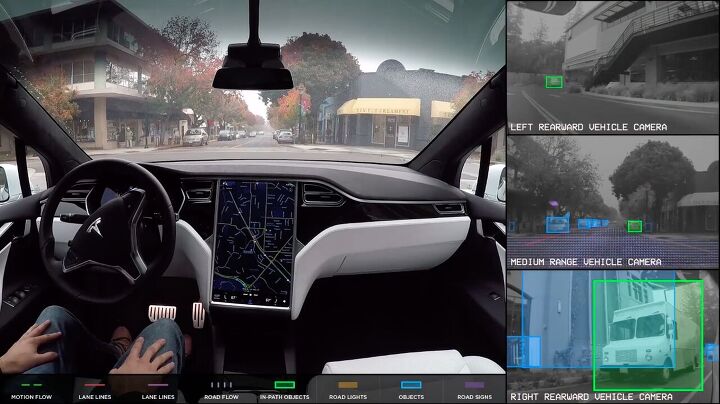Here's What the Average Buyer is Willing to Pay to Avoid Doing All the Driving

While many would argue that piloting your own vehicle is a key part of freedom and enjoyment of life, there are times when we really wish our vehicle could take us home from the bar. Cabs are expensive, Uber is potentially unavailable, and transit, well… it would have to be very good transit.
While vehicles with fully autonomous Level 5 driving modes remain out of reach, automakers are busy trying to wrestle that steering wheel from your hands. Already, most vehicles employ some level of mild self-driving abilities, whether it’s keeping your crossover between the lines, braking automatically to avoid that driver who’s allergic to signalling, or parallel parking itself. It’s nice to have some help sometimes.
However, just because people like protection on the road doesn’t mean they’re not also protective of their wallets. What is your average car buyer willing to pay for these conveniences?
According to a recent study uncovered by CNET, everyone has a price. One thing becomes clear when reading the results — fully autonomous driving remains a polarizing issue, with many respondents not willing to pay a cent for the technology. Others would rob a bank for the ability to turn over the driving responsibility to their car.
The study makes a point of covering the opinions of a diverse cross-section of Americans, closely aligning it with the existing mean for gender, income, age and ethnicity. Having delved deeply into past surveys on the subject, the study’s architects posed a number of questions. Among them, what dollar figure would participants be willing to pay to add semi-autonomous technology to a car (safety aids like automatic braking) or full autonomy.
The results revealed “a significant share of the sample is willing to pay above $10,000 for full automation technology while many are not willing to pay any positive amount for the technology.” On average, Americans said they’d be willing to pay about $3,500 for partial automation and about $4,900 for full automation.
That higher figure is considerably less than the results of a 2016 survey in Austin, Texas, which found participants willing to pay $7,253 for fully self-driving technology. People in Austin must really enjoy relaxing — or avoiding insurance claims.
As for self-driving enthusiasm, automakers had better take note. The countrywide study found people “split approximately evenly between high, modest and no demand” for the technology, which signals to automakers that buyers aren’t clamoring en masse to get their hands on it. At least, not yet. The study found many people remain unfamiliar with the newfound gadgetry, and could change their minds after learning more about it.
[Image: Tesla]

More by Steph Willems
Latest Car Reviews
Read moreLatest Product Reviews
Read moreRecent Comments
- Varezhka Maybe the volume was not big enough to really matter anyways, but losing a “passenger car” for a mostly “light truck” line-up should help Subaru with their CAFE numbers too.
- Varezhka For this category my car of choice would be the CX-50. But between the two cars listed I’d select the RAV4 over CR-V. I’ve always preferred NA over small turbos and for hybrids THS’ longer history shows in its refinement.
- AZFelix I would suggest a variation on the 'fcuk, marry, kill' game using 'track, buy, lease' with three similar automotive selections.
- Formula m For the gas versions I like the Honda CRV. Haven’t driven the hybrids yet.
- SCE to AUX All that lift makes for an easy rollover of your $70k truck.

































Comments
Join the conversation
The survey is flawed because it continues to propagate the assumption that the current model of car ownership will continue. Level 5 vehicles will be a shared resource, ready to be summoned via your phone app. The notion of one to one car ownership for the vast majority of vehicles will likely become as outdated as having to worry about finding a parking spot for your car.
The majority of my driving is two lane, tree lined highway but I would gladly pay for the people that sit in the drivers seat eating, smoking, applying make up and giving themselves a Brazilian all at the same time while posting it all on social media the technology for that car to drive itself.